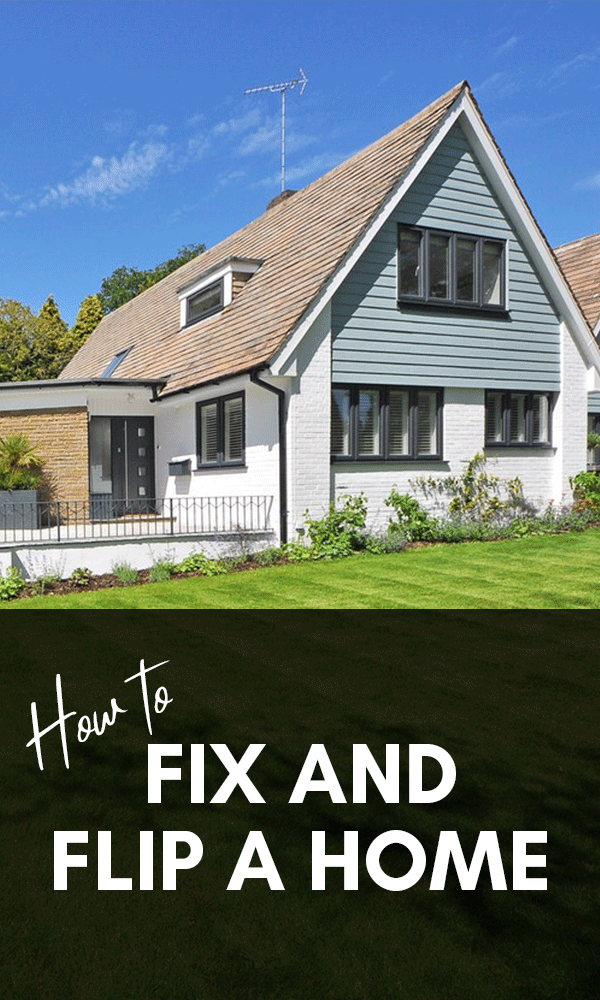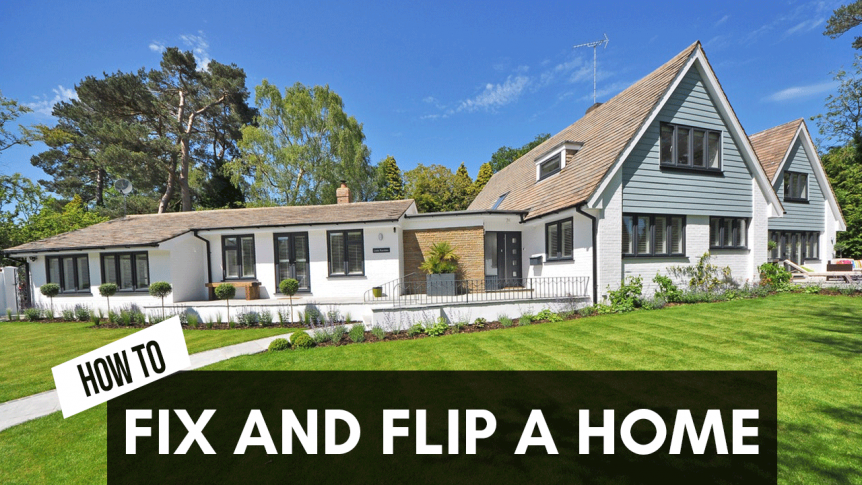In this post we talk about how to fix and flip a home. For those who don’t know what fixing and flipping is, Michael Zuber gives a great explanation of how he does it himself. We visited some of his properties and talked a bit more about how the process works.
How to Fix and Flip a Home – Real Estate Fix and Flip Tutorial ft. Michael Zuber
Below is a transcription of the podcast. This transcription was taken from Otter.ai so it might not be completely accurate:
This is the digital nomad quest podcast with Sharon Tseung. teaching people how to build passive income become financially free and design the best lives as a Sharon from digital nomad quests, and here again with Michael Zuber, so he has almost 200 units in France now. So right now we are looking at some of his fix and flip properties. So I was wondering, maybe you can tell us about what fixing and flipping is?0:29
Sure fixing and flipping is very different than what I did to retire, right, I retired with a portfolio of nearly 200 units that were simply viable, right, I worked a full time job travel all over the world. And I exited because of my passive income, but not what I did, because I had time, right? When you leave your rat race, what people will tell you is you have all this time now. So you got to do something with your day. So I started fixing and flipping. So what that means is I can find a underappreciated asset, like the house were standing, you know, was really, really beaten up, I can buy it for a discounted price, because I have cash. So to put numbers to that I bought this house for $105,000. I did have the experience and the teams that come in and understand what it costs to fix it up to what I call private ownership. This case, this house, roughly speaking, was $25,000 to repair. And then with my network of other people interested in buying holds, I can sell it before it’s actually done. So in this case, I bought it for 105, I put 25 in it was sold at 170. So you take out transaction costs and holding costs and things of that nature. You know, I personally will put away 20 to 25 grand, in four months, I will get all my repair money back, my partner will make five or six grand and I really what helps for me is I can turn something that’s ugly, into a fully functioning asset that will be an easy landlord or easy buying old property for someone.1:50
Cool. Did you put all caps on?1:53
So it’s kind of yes and no, the only way you can really buy discounted properties today is with cash. So I have enough cash to buy them myself. So the day because I did right technically wired money, man. But then again, I have a network and I like recycling my capital. So then I did is I came in and I leverage my private network to replenish my cash. So I bought for 105. Let’s just say for example, I closed on July 1, I replenished my 105 by like July 15 July 17. My there’s a two week period with transactions and escrow documents as I go through full escrow is the record notes and deeds. But I had to buy one of five back in about two to two and a half weeks.2:28
Oh, interesting. Okay, so if someone doesn’t have that much cash, this is not like a good model?2:32
Well, you certainly can do fix and flips, you’re just not going to use your own money, you’re going to go more what’s called hard money. Or maybe you have a private money partner. But yeah, there are ways to get into fixing and flipping yourself, you have to buy even more discounted price to make this work. If you were borrowing 100% of the purchase price and repairs, you would have probably had to buy this 90 grand, right? Because you would have had more discount because you’ve had carrying costs and hard money costs just to get the loan. So it is possible. But you probably would have had to get this for a little bit more of a discount to make sense.3:01
Okay, so for newer people, how do you find the properties I3:06
you have to do homework, you have to network, you got to go to meetups, you have to look online, you really do have to do your homework, you have to get off your computer, I will tell you probably 60% of the deal flow I get is found online. So it’s absolutely possible. But you also have to go talk to people what people don’t really understand is real estate investing is a people business. 40% of my deal. flow comes from conversations like the one we’re having now. Right? Because you’re at a meetup or my next door neighbor’s mailman dog walker has a property for sale or they see something and people just talk. Yeah, so you it’s nice to get out there and have conversations.3:41
Okay, I remember he said you get like a good amount from MLS, though I do. Was that mainly for the wild? Yeah,3:47
I know it’s a different model, because then you’re just calculating your rents and expenses and all of that I bought 95 to 90% of properties that are retired on out of the MLS, the multiple listing service, I bought about 30% of the fix and flip out of the MLS. So it is absolutely possible. But that’s I get some of the leverage because I can use my capital. So I don’t use big margin. If you’re really going to come into this with zero money, you need bigger margins. Usually that’s going to come from having conversations and really networking with folks.4:17
Okay. And the team you get is also from the conversation. Oh, absolutely.
4:21
Yeah, you need to anchor on someone. So if you’re doing just fixing, flipping, that’s going to be your contractor for sure. If you’re buying old that’s going to be a property manager, right, you will likely have an anchor and then that anchor will spider introduce you to more people but yeah, it’s you got a network.
4:37
Cool. You do you said 15 to 20 of these likely Yes. Okay. And normally you’re putting in 100 something.
4:45
So we’re going to average the average purchase price all in because I bought everything from houses like we’re standing and I actually bought a section of the apartment building is one, right? I’ll go after anything that makes sense financially. So I would say my average purchase price is 150 grand, right across the board. And then average repair numbers are about 40 grand. Right? So all in call it sub 200. Just just under two. That’s, you know, rough averages, but again, remember I get the 150 back. Yeah, I’m only investing the 40.
5:13
And then how much do you make back?
5:15
Again? So I would say average profit right? After paying my partner gets 20% right. I would say my average profits right around 25 to $28,000.
5:25
Cool. Okay, I think that’s all the questions I have.
5:30
So I hope you guys enjoyed this episode, please make sure to rate review and subscribe. It really helps our podcast grow. And thanks again. I’ll see you guys in the next one.
Transcribed by https://otter.ai


